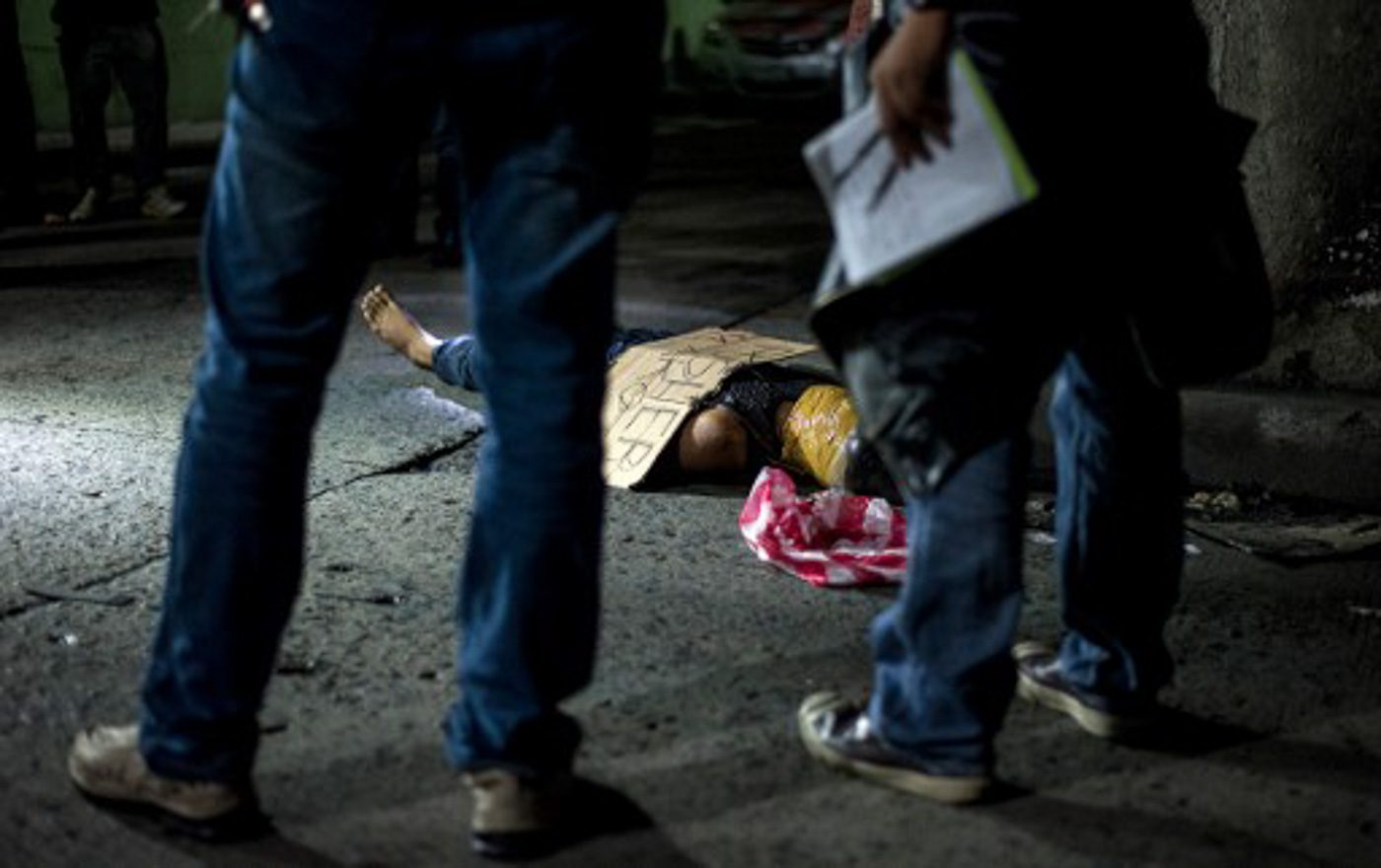SUMMARY
This is AI generated summarization, which may have errors. For context, always refer to the full article.

NEW YORK, USA – A generation ago, dissidents led by Raul Mangalpus and Bonifacio Gillego in groups like the Movement for a Free Philippines led the campaign against Ferdinand Marcos’ autocratic rule in the 1970s and 1980s in the halls of the US Congress.
They did the research into US military records to expose the fake exploits and medals of Marcos during World War Two, helping to undermine support for a regime that was eventually overthrown in 1986.
Some 30 years later, a different group is now lobbying the US Congress to take a careful look at the violent anti-drug campaign of another Philippine leader, Rodrigo Duterte, in an attempt to undercut the tenuous support he enjoys in the current administration.
Ellecer Carlos, spokesman of the I-Defend coalition (In Defense of Human Rights and Dignity Movement) of the Philippines, said in a statement that Filipino activists will be joined by representatives of Amnesty International and Human Rights Watch in testifying before members of the US Congress on the deteriorating human rights record in the Philippines.
“We have 40 to 50 killings every day of the most impoverished, beaten down individuals in Philippine society. The Duterte administration should address the root causes of crime and drugs there,” Carlos said.
He slammed the way Duterte and his most rabid partisans are condemning and threatening those who disagree with his policies, which incidentally includes the mainstream Catholic Church and a handful of politicians in a Philippine Congress and judiciary dominated by his allies.
“This president has consciously vilified human rights defenders, our commission on human rights, effectively distorted social values and taken advantage of a disoriented Philippine public,” Carlos said.
The Tom Lantos Human Rights Commission in the US Congress, a bipartisan body set up in 2008 to look at human rights issues, pinned the blame for the violations of human rights on security forces in the Philippines.
“Security forces are responsible for the most significant human rights concerns in the country, including extrajudicial killings, harassment, disappearances, illegal arrests and torture,” a joint statement by the body’s co-chairs, James McGovern and Joseph Pitts, said.
Duterte has shown little tolerance for human rights.
“I don’t care about human rights, believe me,” Duterte has said in a speech, and drove home the point recently when he reinstated police officers who were accused of killing a mayor in a jail cell even though civilian investigators believe murder charges should be filed against them.
In May 2017, Duterte was invited by President Donald Trump to visit the White House, a move that drew vociferous criticism to the government.
“The Philippines is very important to me strategically and militarily,” Trump had said at that time. Duterte coyly side-stepped the invitation.
Carlos and other human rights activists will present documentation of extrajudicial killings and testimonies of family members of the victims and make recommendations to the commission.
The more than 9,000 people killed by security forces in Duterte’s drug war has sparked both condemnation and criticism of the Filipino leader, who has spewed vitriol at critics ranging from former US President Barack Obama to the European Union and even Pope Francis.
Carlos and his coalition are campaigning to pass the bipartisan Philippines’ Human Rights Accountability and Counter-narcotics Act. It was recently introduced by Maryland Democratic Senator Benjamin Cardin and Florida Republican Senator Marco Rubio, who ran for the Republican presidential nomination in 2016. There are seven other cosponsors.
The bill authorizes US$50 million to be used by the State Department and USAID to promote a public health approach to substance abuse and to support Filipino defenders of human rights, assist victims of human rights violations, respond to human rights emergencies, and promote and encourage the rule of law, including the support for non-governmental organizations in the Philippines.
Its chances for approval, much less Trump signing off on it, are murky at best.
Some 30 years ago, Duterte was like Marcos, enjoying public support from the US and a modicum of popularity in the Philippines. If anything, Duterte enjoys even stronger support among Filipinos, if the surveys are to be believed.
The campaign has to start somewhere though. – Rappler.com
Rene Pastor is a journalist in the New York metropolitan area who writes about agriculture, politics and regional security. He was, for many years, a senior commodities journalist for Reuters. He is known for his extensive knowledge of international affairs, agriculture and the El Niño phenomenon where his views have been quoted in news reports.
Add a comment
How does this make you feel?
There are no comments yet. Add your comment to start the conversation.